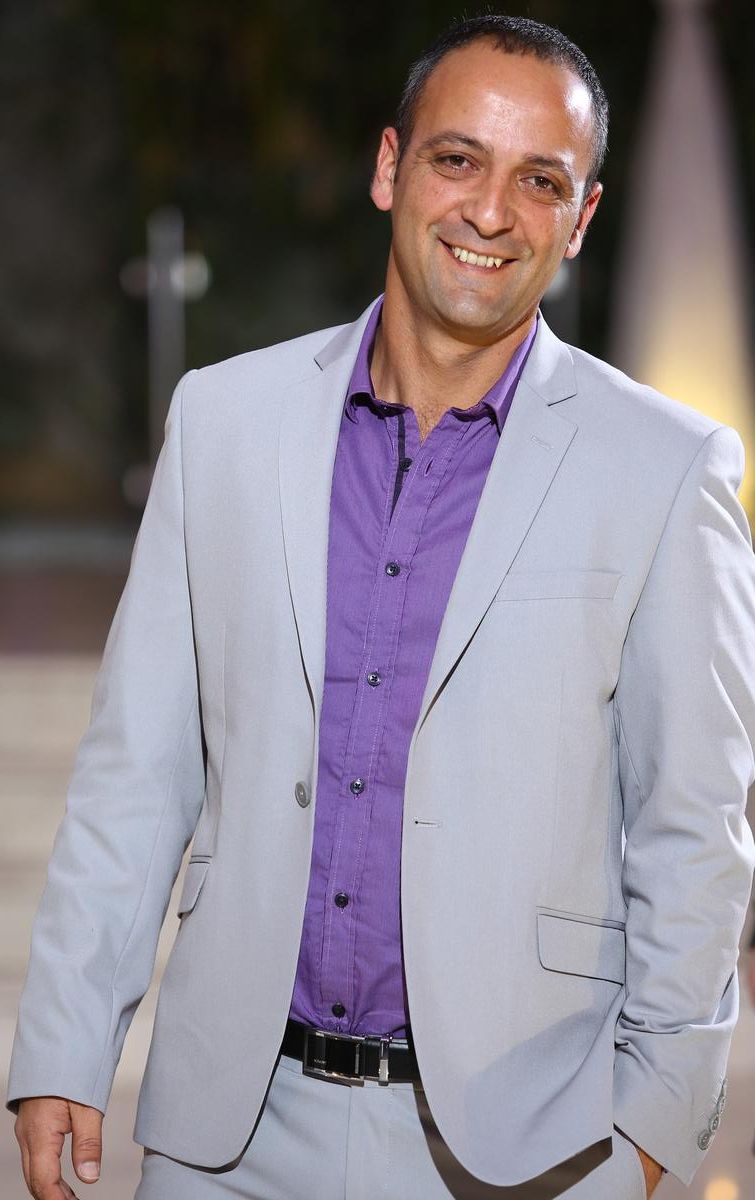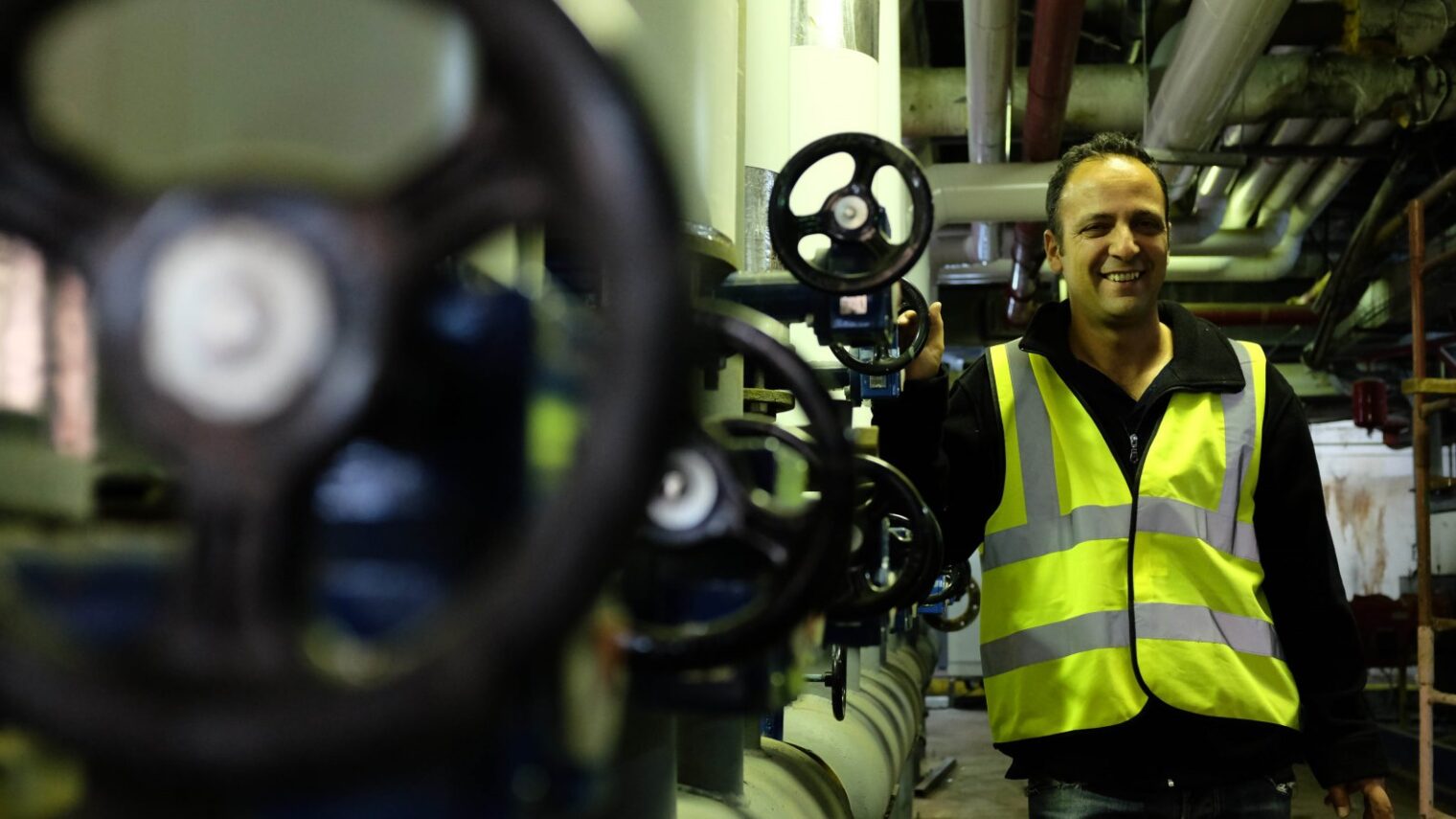Hotel stays can take a big chunk out of your wallet, in large part because of high operating expenses. But if a hotel could save up to 20 percent by better managing its heating and cooling systems, maybe that savings would be passed on to the consumer.
Israeli startup Vortex Energy has developed the software to reduce not only operational costs but also climate-changing CO2 emissions – and that might heat up the usually staid hotel space.
For its pilot project, Vortex Energy retrofitted the boiler room in Ramat Gan’s ritzy Leonardo City Tower with special sensors and monitors that collect data on temperature fluctuations.
It’s a big job.
“For a typical machine room for air conditioning and heating, we’ll have 400 to 500 inputs,” Vortex cofounder and vice president of sales and marketing Avi Mizrachi tells ISRAEL21c.
Those inputs measure both the temperature of the air being generated by the boiler system and the outside temperature. “We take it all into our computer, do the math and decide what to do,” Mizrachi says.
The outside temperature is key to the equation. If it’s 30 degrees Celsius at midday and you want the temperature inside the building to be 23 degrees, for example, you have to chill the water in the air-conditioning system to about 7.5 degrees, Mizrachi says. But when the temperature outside drops to 27 degrees, the water has to be chilled to only 9 degrees.
For a hotel, that can be “a huge difference,” Mizrachi points out. For each degree, a hotel can save 5% on its energy costs.
Before Vortex, there was “no way to know what a hotel’s heating and cooling needs are going to be right now, in the next hour or tomorrow,” Mizrachi adds.
Moreover, without Vortex’s automation and data insights, hotel employees would have to manually power down the air conditioning system – and that might be hours later rather than in real time.
The Leonardo in Ramat Gan saw a 12% reduction in the building’s annual energy consumption during the four-month pilot, and – in good news for the planet – a 50% reduction in CO2 emissions. The total savings was ₪220,000 (about $64,000) – enough to cover the ₪150,000 ($43,500) Vortex would charge to install a system of that size, including software, sensors, monitors and control panels.
The more the merrier
The Leonardo is part of the Fattal hotel chain and Vortex is now working on adding its energy-saving sensors to three more Fattal properties. Vortex has also outfitted hotels in the Crowne Plaza chain and the American Embassy in Tel Aviv.
The more buildings using Vortex’s software in an area, the better. That’s because if the outside temperature is 27 degrees at one hotel, it’s probably the same down the street.
“Future hotels won’t need all the investment in monitors,” Mizrachi says. “They can enjoy the information they get from their neighbors.” That will bring the cost down even more.

Vortex has the backing of the Michael Ilan Group, the Israeli elevator company, which provided the initial investment and engineering expertise when Vortex was getting started in 2011. Today, Vortex and Ilan are still working together, although Vortex is an independent 12-person company headquartered in the coastal city of Netanya.
Ever the entrepreneur and tinkerer, Mizrachi – who grew up in Jerusalem – told ISRAEL21c that he dropped out of high school but was always “doing business from a young age, selling things.” He began working with his brother-in-law marketing heat pumps for swimming pools.
“I fell in love with energy,” Mizrachi jokes. “I say it like that, but I really do love it.” Developing Vortex’s automation and energy management systems was a natural next step.
Mizrachi’s passion is important for Israel, too, which pledged as part of the Paris climate accords in 2016 to reduce greenhouse gas emissions in the country 25% by 2030.
Vortex currently sells both sensors and software but the goal for 2018 is to move toward selling software exclusively. “Then we can do it for thousands of customers,” Mizrachi says. “We can do it everywhere in the world.”
Buildings such as prisons and nursing homes also could use Vortex’s system, but hotels are a good place to start. “Hotels are not like a big factory that has its own engineering department and can build and operate such a system themselves,” Mizrachi explains. “So it’s very comfortable for a hotel to do business with us.”
As Vortex expands beyond Israel, it may have the opportunity to play a role in the evolution of the “smart city,” where sensors and shared data become as important as roads and electric wires.
Kelly Kline, chief innovation officer for the California city of Fremont, told ISRAEL21c that the area in which Vortex was operating “is definitely an interesting space [and one that] is popular for clean-tech entrepreneurs. The sensor explosion is upon us.”
For more information, click here.














